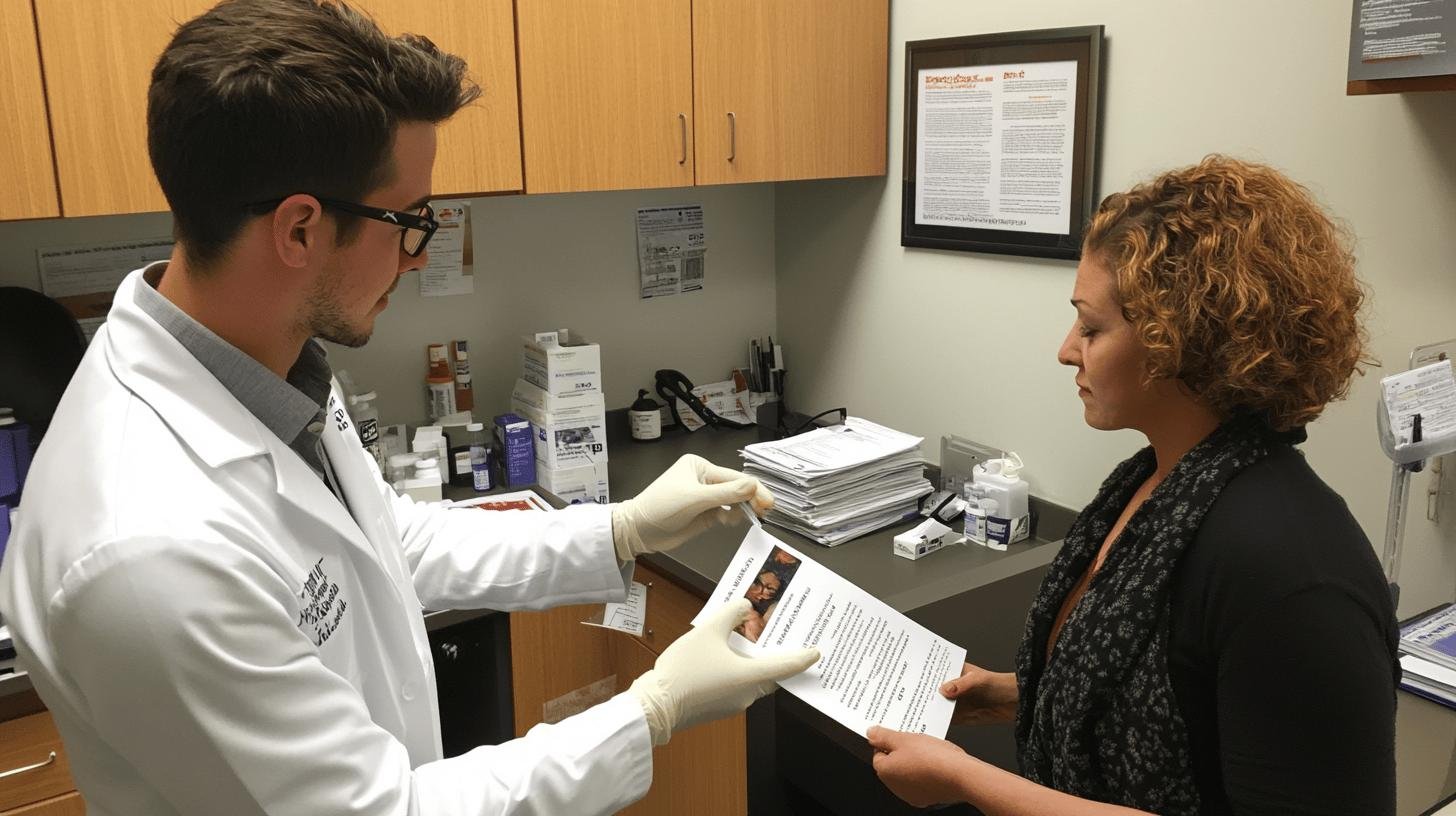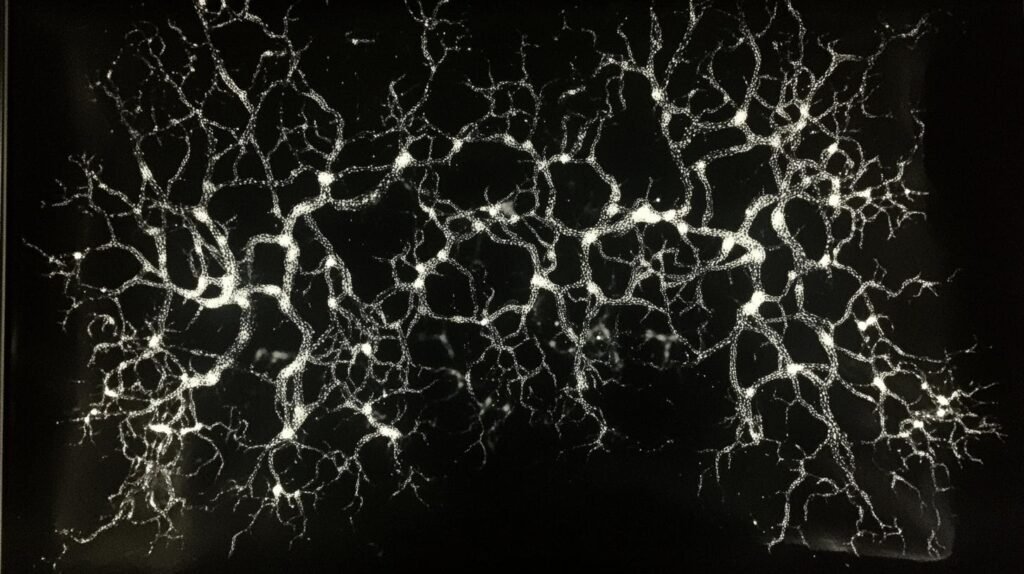TL;DR:
- Most neurological diseases are not contagious; they arise from genetic, environmental, or lifestyle factors.
- Exception: Creutzfeldt-Jakob disease can be infectious but isn’t easily spread.
- Common non-contagious neurological diseases include Alzheimer’s and Parkinson’s.
- Infectious conditions like meningitis can result from bacteria/viruses and may show symptoms like fever and stiff neck.
- Prion disease transmission is rare and occurs through specific contact (e.g., infected tissue).
- Direct Primary Care (DPC) aids in managing these conditions by offering personalized, cost-effective care.
- Prevention strategies include vaccinations, hygiene, health checks, and awareness campaigns.
- DPC enhances patient engagement through tailored care plans and proactive wellness programs.
This question, ‘Are neurological diseases contagious?’ may have crossed your mind once or twice, and you may have even wondered if you can catch them like a cold. Spoiler alert: most neurological diseases aren’t contagious at all! They usually stem from things like your genes, lifestyle, or the environment you live in. But here’s a curveball—conditions like Creutzfeldt-Jakob disease have infectious origins, just not in the way you might think. Let’s unravel this tangled web and explore how direct primary care can help manage these tricky-to-tackle conditions. So, stick around, and let’s get our facts straight on this brainy business!
Understanding the Contagiousness of Neurological Diseases
Are neurological diseases contagious? The short answer is no—most aren’t. They often develop from genetic, environmental, or lifestyle factors affecting the brain, spinal cord, and nerves. An exception is Creutzfeldt-Jakob disease, which has infectious origins. However, it’s not something you catch from simple contact like shaking hands.
Let’s explore why most neurological disorders aren’t contagious. Take, for instance, Alzheimer’s and Parkinson’s. These are mainly related to aging and genetics, not person-to-person transmission like the flu. While some conditions, such as meningitis, may have infectious roots, they usually don’t spread easily. The main point is that neurological diseases generally stem from internal rather than external factors.
Key factors contributing to neurological conditions include:
- Genetic influences
- Environmental impacts
- Lifestyle choices
- Aging
- Chronic illness
How can direct primary care help manage these conditions affordably? This healthcare model offers a cost-effective alternative by bypassing insurance hassles. It provides personalized care, emphasizing prevention and management. This allows you to spend more quality time with your doctor and less worry about costs, helping you maintain your neurological health.
Infectious Neurological Conditions: Causes and Examples

Ever wondered what causes infectious brain diseases? Some, like meningitis, arise from infectious agents like bacteria and viruses. These can enter the nervous system and cause severe, chronic, and sometimes life-threatening problems. Though rare, some are contagious under specific situations.
Understanding the symptoms of these infections is essential. They can vary widely but often include:
- Fever and chills
- Severe headaches
- Stiff neck
- Sensitivity to light
- Altered mental state
These signs can be alarming. If you notice them, seek medical help immediately. Here’s a quick look at some specific infectious conditions, their causes, and symptoms:
| Infectious Condition | Cause | Symptoms |
|———————-|——————–|—————————–|
| Viral Meningitis | Viruses | Headache, fever, stiff neck |
| Bacterial Meningitis | Bacteria | High fever, neck stiffness |
| Encephalitis | Viruses/Bacteria | Confusion, seizures |
Why is early diagnosis and treatment crucial? Direct primary care (DPC) can provide timely intervention without insurance delays, leading to better outcomes. DPC’s personalized care ensures you’re not just another number. If symptoms appear, don’t delay—get checked immediately!
Prion Diseases and Human-to-Human Transmission
Ever heard of prion diseases? These rare brain disorders, including Creutzfeldt-Jakob disease and Kuru, are due to misfolded proteins causing brain damage. Imagine a protein going rogue, twisting into the wrong shape, and causing chaos. These misfolded proteins lead to severe neurological symptoms and are notoriously tough to treat.
Transmission Mechanisms
Can prion diseases be passed from person to person? Yes, but only under specific and rare circumstances. Unlike the flu, you won’t catch a prion disease by being near someone affected. Transmission usually involves contact with infected brain tissue or spinal fluid, possibly through medical procedures or cultural practices like ritual cannibalism (seen with Kuru). While human-to-human transmission is possible, it’s rare and typically linked to particular situations.
How does direct primary care (DPC) aid in managing these rare conditions? DPC offers practical, personalized care, focusing on early detection. Patients can access healthcare providers easily, ensuring swift responses. This approach includes continuous monitoring and tailored care plans, all without insurance barriers, allowing you to focus on your health journey with a supportive partner.
Prevention and Control of Neurological Disease Spread

Are neurological diseases contagious? Generally, no. Symptoms may seem widespread, but these diseases don’t spread through human contact. Prevention hinges on public health education and measures. By raising awareness, we can reduce anxiety and focus on effective strategies.
Practical prevention steps include:
- Routine vaccinations
- Good hygiene
- Regular health checks
- Awareness campaigns
- Healthy lifestyle choices
- Access to healthcare services
How does direct primary care (DPC) contribute to prevention? DPC simplifies healthcare by promoting these measures without insurance hassles. Patients have more time with doctors, staying current on vaccinations and check-ups. DPC’s personalized care tailors to individual lifestyles, leading to better outcomes.
Community health initiatives greatly impact neurological health. By fostering partnerships, they spread the word on healthy living and regular check-ups, providing resources for accessible care. So, when you hear about a community health fair, consider participating—it benefits both you and the community!
Direct Primary Care in Managing Neurological Disorders
Is managing neurological disorders costly? Not with direct primary care (DPC). This model makes healthcare affordable by charging a regular monthly, quarterly, or as-needed fee covering most primary care services. Traditional insurance hassles are minimized. You enjoy more doctor time, focusing on health and wellness.
Personalized Care Plans
How does DPC tailor care for neurological patients? By creating personalized care plans. Imagine a healthcare partner who knows your history and addresses your unique needs. DPC doctors aren’t rushed; they take time to understand neurological disorders like Alzheimer’s, Parkinson’s, or epilepsy. These plans cover comprehensive management, focusing on prevention, monitoring, and lifestyle adjustments—guiding you toward better health!
Can wellness programs improve patient outcomes? Absolutely! DPC emphasizes proactive care. Wellness programs support preventive strategies and help manage conditions before they escalate. Think health screenings, lifestyle coaching, and continuous support. These empower patients, reducing complications and enhancing life quality. With DPC, you’re a team member dedicated to your well-being. So, why wait? Embrace this approach and experience the benefits!
Final Words
Diving into the world of neurological diseases might seem intense, but we’ve unpacked the essentials here. For the most part, neurological diseases aren’t contagious; they arise from factors like genetics and lifestyle instead.
Yet, certain infectious conditions do exist, like viral meningitis, where early diagnosis in Direct Primary Care can be a game-changer.
Prion diseases present unique transmission challenges, but they’re pretty rare. Direct Primary Care steps up with personalized plans, providing affordable, proactive health management solutions.
Promoting health through prevention and public education keeps communities informed and stronger.
Stay tuned and take charge of your neurological health!
FAQ
Neurological Infection Examples
Q: What are some examples of neurological infections?
A: Neurological infections can include meningitis, encephalitis, and polio. Each involves the central nervous system and can lead to severe complications if not treated.
Neurological Infection Symptoms
Q: What are the symptoms of a neurological infection?
A: Symptoms may include fever, headaches, stiffness, confusion, or seizures. If you notice these signs, seeking medical advice promptly is important.
Viral Nerve Infection Symptoms
Q: What are the symptoms of a viral nerve infection?
A: Viral nerve infections can cause pain, weakness, or numbness. Sometimes, they may lead to more severe symptoms like paralysis or difficulties with coordination.
Neurological Infection Treatment
Q: How are neurological infections treated?
A: Treatment often involves antibiotics or antiviral medications, depending on the cause. Early diagnosis and medical care are crucial for effective recovery.
Neuro-Infectious Disease Doctor
Q: Who should I see for a neuro-infectious disease?
A: You’ll want to consult a neurologist specializing in infectious diseases. They can provide targeted treatment and manage symptoms effectively.
Central Nervous System Infection in Adults
Q: What happens if an adult gets a central nervous system infection?
A: Infections in the central nervous system can cause severe complications like brain damage or long-term neurological issues. Early treatment is vital to minimizing risks.
Contagious Neurological Diseases
Q: What neurological diseases are contagious?
A: While most neurological disorders aren’t contagious, diseases like meningitis can spread, particularly the viral or bacterial forms. Always practice good hygiene to reduce exposure.
Inherited Neurological Disorders
Q: Can neurological disorders be passed on to offspring?
A: Yes, some neurological disorders, like Huntington’s disease, are genetic and can be inherited from parents. It’s best to consult a genetic counselor if you have concerns.
Triggers for Neurological Disorders
Q: What triggers neurological disorders?
A: Triggers can include genetic predisposition, environmental factors, lifestyle habits, injuries, or infections. Understanding these can help in prevention and management.
Most Common Neurological Disorder
Q: What is the most common neurological disorder?
A: Headaches, particularly migraines, are among the most common neurological disorders affecting millions globally. They’re often manageable with proper treatment.

